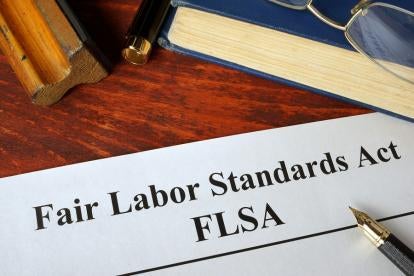Employers recognize that the Fair Labor Standards Act (FLSA) requires that they pay nonexempt employees overtime wages for all hours worked in excess of 40 hours in a workweek. Additionally, the FLSA imposes recordkeeping requirements on employers regarding the hours worked by their nonexempt employees. A recent Fifth Circuit Court of Appeals decision, U.S. Department of Labor v. Five Star Automatic Fire Protection, LLC, illustrates the danger to employers when they fail to keep complete timekeeping records of their nonexempt employees’ work.
Background
Five Star Automatic Fire Protection, LLC, employed 53 construction workers who would travel to client sites to install and/or repair fire protection equipment. Construction employees typically worked from 7:00 a.m. to 3:30 p.m. The company’s personnel policy required employees to record all the hours they worked. However, testimony from employees uniformly reflected that they were required to show up between 15 and 30 minutes before the start of their shifts at 7:00 a.m. and/or were either explicitly or impliedly told that they could not record their time prior to 7:00 a.m. Additionally, the employees did not record their time from the end of their shifts at client sites for their travel back to the company’s premises at the end of the day.
The Fifth Circuit’s Analysis
In analyzing this situation and the lack of complete records, the Fifth Circuit applied Anderson v. Mt. Clemens Pottery Co., a 1946 decision by the Supreme Court of the United States holding that if an employer does not keep accurate time records, the employees’ testimony regarding the hours they worked may provide an inference of correctness as to the hours worked. If the time records are inadequate to reflect the time worked and an employee “‘produces sufficient evidence to show the amount and extent of that work as a matter of just and reasonable inference[,]’ [t]he burden then ‘shifts to the employer to [produce] evidence of the precise amount of work performed or … evidence to negat[e] the reasonableness of the inference’” in favor of the employee. The Fifth Circuit determined in this case that because the produced time records did not reflect the pre-shift and post-shift times worked, the employees’ testimony provided a reasonable inference of the time that they had worked and the employer could not rebut such evidence because it lacked accurate records. The Fifth Circuit affirmed the trial court’s award of back pay and liquidated damages to the employees.
Key Takeaways
The Fifth Circuit’s decision reinforces the requirement that employers keep accurate records of time worked. A failure to do so may make it difficult to defend an FLSA suit. On another level, it also presents a difficult question about the application of the Mt. Clemens burden-shifting framework and inferences in the very frequently occurring scenario where an employer insists that it maintained appropriate records and employees insist that they worked off-the-clock hours or were instructed by their immediate supervisors not to record time.
There are several ways that employers can deal with this situation. First, employers may want to have strict policies that require all nonexempt employees to record all hours worked and that provide for employee training on the policies. Second, employers may want to maintain policies that require employees to verify the hours that they have worked during a pay period to ensure that they are accurate and to confirm that the hours worked are accurate. Third, employers may want to have policies providing mechanisms for employees to raise issues regarding any pay discrepancies.
Finally, employers may want to implement review or audit systems such that individuals with knowledge of how the nonexempt employees actually work and are scheduled to work can review the payroll records and determine if worked time is somehow not being recorded. With the implementation of these types of policies and practices, employers may be able to avoid the adverse inference provided under Mt. Clemens that employees’ testimony will be given deference regarding the number of hours worked.




 />i
/>i
